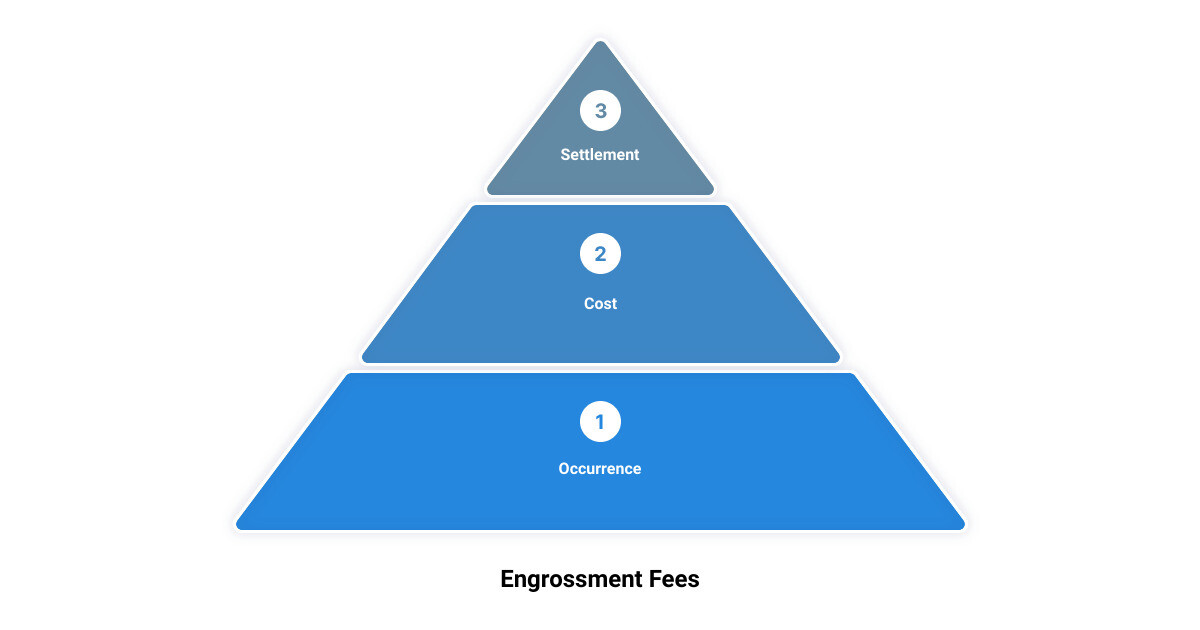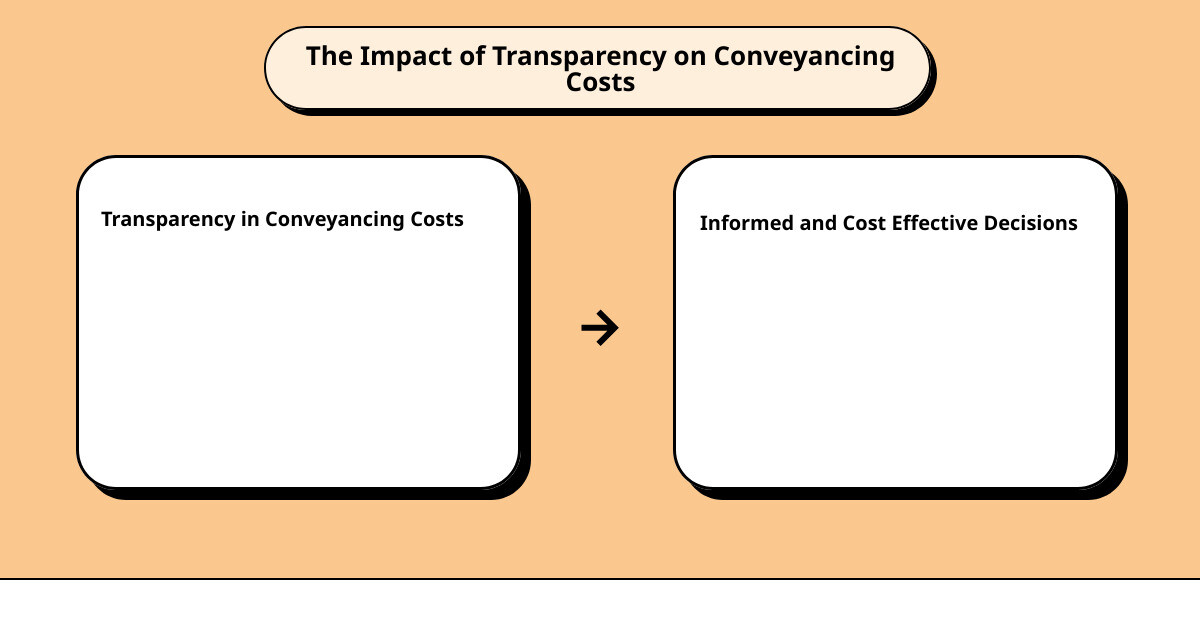The world of property buying, selling, and conveyancing is riddled with a plethora of jargon, one of them being ‘engrossment fees’. When it comes to understanding your conveyancing quotes and fees, it’s essential to know what you’re paying for and why. In this article titled ‘Unlocking the Mystery: What is Engrossment Fees?’, we’ll take you on a clear and concise journey through the intricacies of engrossment fees, helping you to navigate the conveyancing process smoothly.
Engrossment fees, also known as completion fees, are charged by conveyancers to create final legal documents essential for property transactions. This includes the preparation of vital documents like leases or contracts for sale. The engrossment process involves several drafts and amendments that require time and effort from your conveyancer, leading to the additional charge known as the engrossment fee.
While it may seem like an added expense, understanding its role in your property transaction can help you appreciate its value. It’s worth noting that these fees have evolved with time, especially with the advent of digital advancements. In the following sections, we’ll delve deeper into the historical context of engrossment fees, their practical application today, and how you can navigate them efficiently with your conveyancing service.
As homeowners and property buyers, your main aim is to ensure a smooth, cost-effective transaction. Being aware of all associated fees, including engrossment fees, is crucial for a clear, transparent, and successful property purchase or sale.
Historical Context of Engrossment Fees
The Role of Engrossment Fees in the Past
Tracing back the pages of time, the concept of engrossment fees was not alien to the property transaction world. Back in the day, the engrossment fee was a cost associated with the physical effort of creating a legal document or contract for the transfer of ownership from the seller to the buyer. It was charged by the seller’s conveyancer for meticulously drafting, editing, and preparing the final version of the legal document for signature after multiple rounds of revisions.
As a potential property buyer or seller, you may wonder why such a fee was necessary. The answer lies in the labour-intensive process it entailed – drafting, typing, editing, and finalizing a contract required a significant amount of time and effort.
The Impact of Digital Advancements on Engrossment Fees
Fast forward to the digital age, and the landscape has dramatically changed. Modern technology has made the drafting and editing process much less labour-intensive and time-consuming. Digital documents can be easily edited and shared online, eliminating the need for paper, pens, and the back-and-forth mailing of documents.
This shift to digital has stirred debates about the relevance and fairness of engrossment fees in today’s world. Some believe that engrossment fees are no longer justified as the process can now be completed electronically in a fraction of the time it used to take. Despite this, engrossment fees can still occur, but it’s important to note that they are not a legal requirement.
As we navigate the digital age, it is crucial for homeowners and property buyers to understand how these changes impact the costs associated with property transactions. In the next section, we delve into the practical application of engrossment fees in the modern property market.
The Practical Application of Engrossment Fees Today
While the digital age has significantly transformed the conveyancing process, engrossment fees still exist in the modern property market.
When are Engrossment Fees Charged?
Engrossment fees are often charged after the draft transaction paper, or the legal document outlining the property sale, has been finalized and needs to be formalized for signature. This usually happens once the conveyancer representing the other party has thoroughly checked the document and deemed no further amendments are needed.
It’s important to note that the engrossment process entails multiple drafts and amendments, requiring the solicitor to liaise between the parties repeatedly. This back-and-forth process demands added effort and time from the conveyancer, and as a result, engrossment fees are charged to compensate for these extra costs.
Bear in mind that while this process was traditionally done manually, it can now be completed digitally, eliminating the need for physical paperwork and thus reducing costs. However, if you request a physical copy of the document, you may still be charged an engrossment fee to cover the costs of producing this hard copy.
The Average Cost of Engrossment Fees in the UK
The cost of engrossment fees can vary widely in the UK, depending largely on the complexity of the property transaction and the conveyancer’s charging structure. However, on average, you can expect engrossment fees to be somewhere in the region of £150 to £250. This fee is generally included in the overall cost of the conveyancing service provided by your solicitor.
Remember, it is always wise to ask your conveyancer upfront about any additional fees, including engrossment fees, to ensure you have a clear understanding of all costs involved in your property transaction. This transparency will help you budget effectively and avoid any unpleasant financial surprises down the line.
The Legal Perspective on Engrossment Fees
Engrossment fees are nestled within the complex world of property conveyancing, a term that can often leave homeowners and property buyers perplexed. To bring clarity to this process, it’s crucial to understand the legal perspective surrounding these fees.
Are Engrossment Fees a Legal Requirement?
From a legal standpoint, engrossment fees are not a mandated requirement. They are, however, commonly charged by conveyancers for the preparation of a final legal document for signature, such as a lease or contract. This fee covers the additional work involved in creating an official and legalised copy of the document that is ready for signing by both parties.
However, it’s important to note that with the rise of digital technology, the necessity and justification for engrossment fees have been questioned. The digitalisation of the conveyancing process has significantly reduced the time and resources traditionally required to prepare these documents, leading some to argue that charging for engrossment fees in the modern digital age can be seen as an unfair practice.
How to Object to Engrossment Fees
If you find yourself faced with an engrossment fee that you believe to be unfair, you have the right to object. Start by asking your conveyancer to explain why they are charging this fee. If their explanation doesn’t satisfy you or if you believe the fee is not justified, you can raise your concerns directly with them.
Maintaining open communication with your conveyancer is key to understanding and navigating any additional fees. You should always feel comfortable asking questions and voicing any concerns you may have. Remember, any reputable conveyancer will value transparency and be willing to provide clear explanations for all fees included in their service.
When it comes to property transactions, understanding the legal perspective on engrossment fees empowers you to make informed decisions. While these fees are not legally required, they are commonly charged, and therefore, it’s important to understand what they are and when they might be applied.
In the next section, we’ll delve into how to navigate engrossment fees with conveyancing services, ensuring you make the best financial decisions for your property transaction.
How to Navigate Engrossment Fees with Conveyancing Services
Understanding engrossment fees is an essential part of the home buying process, but it shouldn’t be a cause for stress or confusion. When engaging with conveyancing services, you have the right to know what you’re paying for and why. In this section, we’ll shed some light on the importance of transparency in conveyancing fees and how you can save on conveyancing costs.
The Importance of Transparency in Conveyancing Fees
In a world where hidden fees lurk in the fine print, transparency is key, especially when it comes to property transactions. After all, purchasing or selling a home is a significant financial decision. That’s why your chosen conveyancer should provide you with a detailed breakdown of their fees, including any engrossment fees, upfront. This ensures you can budget effectively and avoid any unpleasant surprises down the line.
Conveyancing solicitors may charge in different ways, such as a fixed fee, an hourly rate, or a percentage of the property price. Regardless of the pricing structure, the quote should include information about all charges, including VAT. This way, you’re comparing apples to apples when you evaluate quotes from different firms.
Be vigilant and look for additional costs or potential ‘hidden’ extras. Remember, transparency isn’t just about providing information – it’s about ensuring the information is clear, accurate, and easy to understand.
How to Save on Conveyancing Costs
While certain fees, like the engrossment fee, may seem non-negotiable, there are ways to save on conveyancing costs.
Firstly, shop around and compare quotes from different conveyancers. This not only allows you to find the most competitive rate but also gives you a chance to assess the quality of their services and their responsiveness to your queries.
Secondly, consider a conveyancer that offers a fixed fee policy. This means you won’t find any extra costs outside of the quote provided, giving you peace of mind and allowing you to budget effectively.
Lastly, don’t underestimate the value of expertise. Working with a verified and experienced solicitor ensures that the legal work is completed accurately and to the correct standards, potentially saving you money in the long run by avoiding costly errors or oversights.
Navigating engrossment fees with conveyancing services doesn’t have to be a daunting task. With a little research, a clear understanding of fees, and a diligent approach, you can manage these costs effectively and ensure a smooth property transaction.
The Role of Engrossment Fees in Leasehold, Converted, or Newly-Constructed Properties
Unravelling the red tape of property transactions can often lead to unexpected costs, such as engrossment fees. Particularly when dealing with leasehold, converted, or newly-constructed properties, these fees can become a common part of the process.
Why Engrossment Fees are Common in These Types of Properties
Engrossment fees are typically associated with these types of properties due to the additional legal work involved. Leasehold properties, for instance, involve an agreement between a landlord and a buyer, often in the form of a Deed of Covenant, which can necessitate further legal documentation and thus, engrossment fees.
Similarly, converted properties and newly-constructed homes often come with their own unique set of legal requirements. Purchasing a newly built home, for example, involves thorough paperwork to cover the developer’s efforts in handling the legal documents. Additionally, different developers may charge varying engrossment fees, making it crucial to understand these costs upfront.
How to Prepare for Engrossment Fees in These Scenarios
Preparing for engrossment fees in these scenarios entails open and transparent communication with your conveyancer or conveyancing solicitor. It’s essential to ask about any potential engrossment fees and understand why they are being charged. Remember, it’s your right to inquire about any fees you are charged, and your solicitor should willingly explain these to you.
Also, thoroughly read all terms and conditions before signing any agreements. Any possible engrossment fee should be outlined in these terms. If you believe the fee is unfair or unnecessary, do not hesitate to object.
Lastly, consider seeking a conveyancer who offers a clear, upfront fee structure, giving you a full breakdown of all potential costs. This kind of transparency can help you budget accordingly and avoid any surprise costs down the line.
When it comes to navigating the complexities of property transactions, knowledge is power. Understanding the role of engrossment fees in leasehold, converted, or newly constructed properties can equip you with the insight you need to ensure a smooth, cost-effective process.
Conclusion: Demystifying Engrossment Fees in Property Transactions
In the intricate web of property transactions, engrossment fees can seem like one more puzzling term to decipher. But having delved deep into the subject, it becomes clear that understanding these fees can pave the way for a smoother, more transparent property transaction.
Engrossment fees, historically charged for the meticulous task of finalising legal documents, have evolved with the advent of digital advancements. Today, while they’re not a legal requirement, they can surface as part of the conveyancing process, particularly when dealing with leasehold, converted, or newly constructed properties. Their cost can vary but staying informed and asking the right questions can help you prepare and budget effectively.
At the heart of it all lies the importance of transparency in conveyancing fees. Ensuring you have a comprehensive breakdown of all the costs involved, including any potential engrossment fees, is crucial to avoid any unpleasant surprises. Remember, a professional conveyancing service should offer clarity and openness about their fees, helping you make an informed decision.
Equally vital is the quest to save on conveyancing costs. Look for services that offer fixed fee conveyancing to minimise the likelihood of unexpected charges. Moreover, the “No Move, No Fee” guarantee offered by some providers can also offer added peace of mind, ensuring you only pay when your sale or purchase is complete.
In conclusion, while the term ‘engrossment fees’ may seem intimidating, with the right knowledge and the right team behind you, navigating it becomes less daunting. Stay informed, ask questions, and choose a conveyancing service that prioritises transparency and customer satisfaction to make your property journey a rewarding one.




